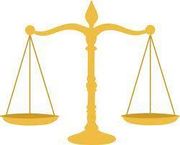6 Types of Evidence to Include in a Personal Injury Claim

When you're involved in a personal injury claim, an arsenal of solid evidence is crucial for a successful outcome. In general, the stronger and more compelling the evidence, the better the chances are for getting the compensation you deserve. Below are six important pieces of evidence that can strengthen your personal injury claim.
What Evidence Should You Include in Your Personal Injury Claim?
1. Medical Records
Your medical records provide a professional opinion on the extent of your injury. They will give an accurate picture of the injury itself, the pain levels you're dealing with, and the prognosis for recovery. Always discuss your injury and any associated medical concerns with your doctor so they can be sure to include it as part of the record.
2. Accident & Injuries Photos
 Photographs offer the most powerful and revealing glimpse of the immediate effects of a personal injury. Any photos or video taken at the accident scene can be submitted with your claim. Images of property or vehicle damage and injuries suffered should be considered essential.
Photographs offer the most powerful and revealing glimpse of the immediate effects of a personal injury. Any photos or video taken at the accident scene can be submitted with your claim. Images of property or vehicle damage and injuries suffered should be considered essential.
3. Contact Information for Witnesses
Having the corroborating testimony of a witness can further bolster your case. Share their name and contact details in your claim so insurers or courts can reach out to them and obtain a statement. With another person backing up your story, you're making a case harder to dispute.
4. Police Reports
Law enforcement typically writes a report at the scene of an accident or injury. This report is considered by most insurers and courts as a reliable, third-party account of the events. If a police report was filed, request a copy from the issuing precinct and include it with your injury claim.
5. Pain & Suffering Report
One of the highest compensated areas of an injury claim is pain and suffering. But these elements are somewhat nebulous and can be difficult to prove. Aim to keep a journal of your recovery with a detailed account of the pain you're experiencing. This will illuminate the extent of the suffering and emotional distress you're under.
6. Proof of Lost Wages
It's not uncommon to take substantial time off work to recover from an injury. Fortunately, you can receive compensation for lost wages associated with an accident or personal injury. Ask your employer for copies of your time cards for the periods immediately before and after your accident, so the discrepancy is apparent. You might also include paycheck stubs to show how much you've lost in wages.
These items will help ensure you get the resources to recover and move forward. Attorney Brandon Ozman of Ozman Law Offices is here to guide you throughout the legal process. He represents clients in Orange County, NY, in personal injury, criminal law, and family law issues, among other specialties. To schedule a consultation, call (845) 778-7777 or visit his website to see a list of his services.
About the Business
Have a question? Ask the experts!
Send your question

